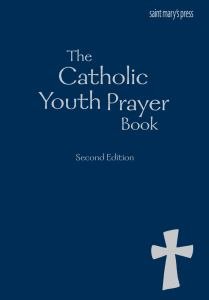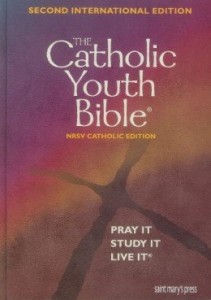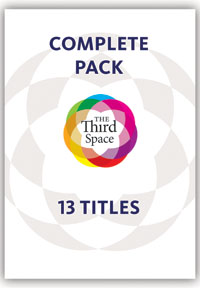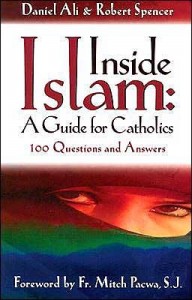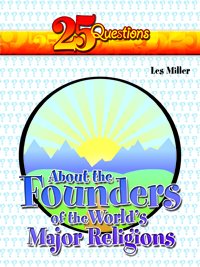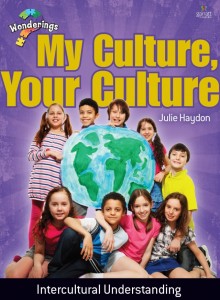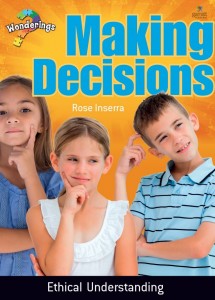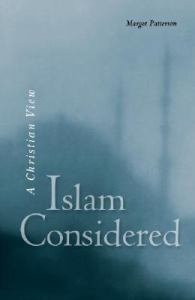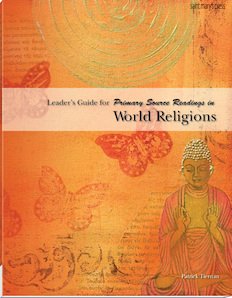- Home
- Issue 10: Care for Our Home
- Issue 9: Eco-Spirituality
- Issue 8: Interfaith Understanding
- Archives
- About us
- Contact
For Secondary
‘An attitude of openness in truth and in love must characterise the dialogue with the followers on non-Christian religions.’
-Pope Francis
It may be hard for us to imagine, but up until the 1960s Australian Catholics faced significant social, political, and employment discrimination, relying on organisations like the Knights of the Southern Cross to redress the problem of anti Catholic discrimination.
Advertisements could openly state ‘Catholics need not apply’,
If we were more conscious of the suspicion with which Catholics and Protestants once viewed one another in this country, we might be more sensitive to similar suspicions levelled at our Muslim compatriots.
If we understood how our own ancestors struggled to ‘fit in’ as Australians we might have more confidence that the vast majority of Muslims in this country will, in time, be as much a part of Australia as every other group whose presence has reshaped our cultural landscape in myriad ways.
Prayer
Lord, give us the wisdom to understand the importance of the relationships between all faiths and religious traditions. May we live in harmony and peace – from settling disputes at school to achieving peace in war-torn countries.
Amen
Prayer from The Australian Catholic Youth Diary, Garratt Publishing.
Suggestions on how to use this prayer
1. Read this prayer for your daily class prayer or write down for individual reflection in your school diary.
2. Choose the theme of interfaith harmony and write a prayer or reflection, poem or lyrics to a favourite tune, or create a collage of images and music based on the recent violent actions that have been committed in the name of religion – such as the Sydney siege and Charlie Hebdo in Paris.
Religious Literacy & Biblical Literacy
TEXT ANALYSIS
Text One
“Knock, And He’ll open the door
Vanish, And He’ll make you shine like the sun
Fall, And He’ll raise you to the heavens
Become nothing, And He’ll turn you into everything.”
– Rumi – Sufi (Islamic) mystic poet
Text Two
“Ask, and it will be given you; search and you will find; knock and the door will be opened to you.”
– Matthew 7:7 – New Testament
If a person needs something from someone behind a door, the most natural thing to do is knock—and keep knocking until the door is opened and the desire is met. In the same way, when we pray to God, asking for something, our needs will be met.
1. Read Rumi’s poem and compare to the scripture, Matthew 7:7. In what way is the message similar?
2. Study the language of both texts. Do you think Rumi is more descriptive? Why or why not? How does this help him to get the message across? Why do you think the Gospel of Matthew is less poetic and more direct? What is the purpose of both these texts? Who is the audience?
SCRIPTURE LITERACY
Read Mark 3:20-35
“And he replied, ‘Who are my mother and my brothers?’ And looking at those who sat around him, he said, “Here are my mother and my brothers! Whoever does the will of God is my brother and sister and mother…”
Jesus asks us to consider all people that believe in God to belong to a big family. They are not relatives by birth but they are loved by God as part of a family. Monotheism is the belief in one God. Jewish, Christian and Muslim people all believe in the same God in that it is the God of Abraham, a revered patriarch for all three religions.
According to Jesus’ teachings we should all be like a family.
1. Do you believe that harmony can be achieved if all religions were considered to be family and we all treated each other as a family?
2. How do families resolve conflicts? Can this be applied to diverse religious beliefs and customs?
3. Give an example of some of your family conflicts and then compare to current religious differences and world events that highlight these conflicts.
4. Role Play. Create a situation where conflict resolution is needed. It may be a family situation where each member is feeling that they are right or in a work dispute between employees or between employer and employee. How can the disagreement or dispute be resolved fairly?
5. At work. If you were a practising Jew or Muslim working in an organisation where your practices and traditions were not understood or catered for (most of them do not in Australia) how do you think you would feel during times of fasting rituals such as Ramadan or having to be home every Friday evening on time to prepare for Shabbat? Create a fictional diary account of your experience.
Suggested Classroom Activities
ACTIVITIES
Multicultural Australia
Australia is a multicultural society with diversity in culture and religious affiliations. This wide variety of religious traditions has led to a number of negative issues both in Australia and overseas, which has contributed to persecution, racism, violence, terrorism and war. Interfaith dialogue may help provide a positive effect on the relationship between religions and faith traditions and encourage harmony.
In groups, either show your agreement or disagreement with the statement by choosing any of these activities below:
1. Do a survey of your school, parents, community on their knowledge of other faith traditions other than their own. Write a list of questions, e.g. what is Ramadan; what is Shabbat; do you have a friend who is not of your religion and do you participate in their customs etc. Compile your research data and present to the class.
2. Research Australian multi faith and multicultural areas where there has been friction, such as in Cronulla in Sydney and the riots, and in those areas that are relatively peaceful. Using the internet, give the class a visual presentation of both.
3. Compare recent world events where there has been violence in the name of religion and how the community has responded in unity rather than in more violence. Use the Sydney siege and #illridewithyou campaign and the attack at Charlie Hebdo office in Paris and the ‘Je Suis Charlie’ movement from the citizens of Paris and world leaders.
The Golden Rule
The Golden Rule – treat others as you would like them to treat you – also known as the Ethic of Reciprocity, has been valued by all cultures and is found in religions and faith traditions. It is a simple but effective guide for being respectful of others and living in harmony.
1. Google The Golden Rule and find how other religions explain this rule and live it. Use the link below to find a poster with symbols of each religion and their expression of this rule and then create your own visual representation.
e.g.
Buddhism
Treat not others in ways that you yourself would find hurtful – The Buddha, Udana-Varga 5.18
Judaism
What is hateful to you, do not do to your neighbour – Hillel, Talmud, Shabbat 31a
Taoism
Regard your neighbour’s gain as your own gain, and your neighbour’s loss as your own loss.
Holy Switch
http://www.abc.net.au/tv/holyswitch/
Watch the ABC series of Holy Switch. Discuss and review an episode of this controversial series of swapping places with someone from a different religious background.
Resources: websites
http://www.abc.net.au/tv/holyswitch/
http://www.interfaithcentre.org.au/
http://www.columban.org.au/thegoldenrule
http://www.bbc.co.uk/religion/religions
http://www.vatican.va/roman_curia/pontifical_councils/interelg/index.htm
Lesson Plan


